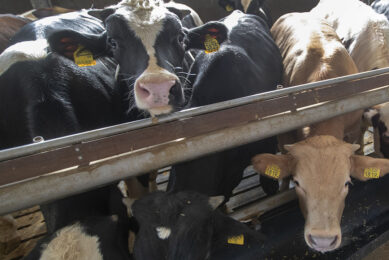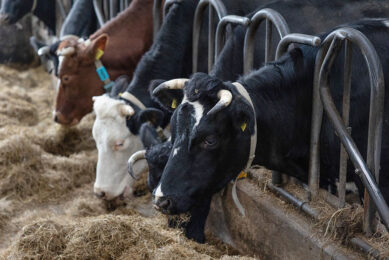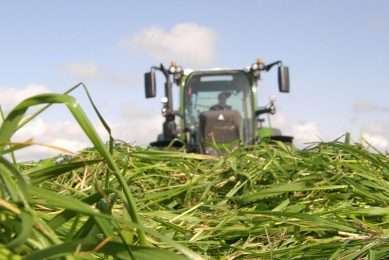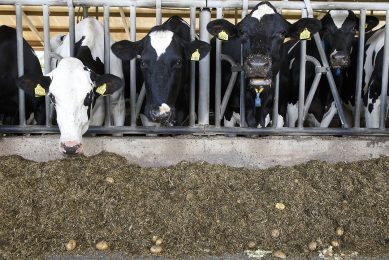Quarantines lifted on 2 dairies after BSE tests show no link to feed
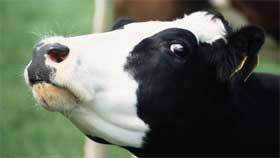
The US Department of Agriculture (USDA) has lifted the quarantines on two Central California dairies connected with a case of Bovine Spongiform Encephalopathy (BSE) after investigators found no link between the illness and food the diseased bovine may have eated.
The tests were part of an investigation started in April following the discovery of a dairy cow (nearly 11 years old) in California infected with BSE . The cow had what is known as atypical L-type bovine spongiform that scientists know happens occasionally. Scientists say they do not yet know what causes this strain of the disease. The incubation period is two to eight years.
Tests also carried out by the World Organization for Animal Health confirmed what the US labs found: The cow had a random mutation of the illness that was unlikely to affect other cows in the herd.
The USDA tests 40,000 of the 35 million cattle slaughtered annually for BSE, but some public health experts have called for more aggressive testing.
Dr. Michael Greger, director of public health and animal agriculture with the Humane Society of the United States, said adopting the European model of testing all older cattle, or the Japanese model of testing every cow slaughtered for human consumption would add mere pennies per pound of beef sold and lower the risk of human cases of the fatal disease.
As part of its investigation, the FDA and the California Department of Food and Agriculture examined feed records at the affected dairy and identified at least 10 suppliers. They said that all were in compliance with regulations.
The California cow, which came from a still-unnamed Tulare County dairy, had been unable to stand when she was euthanized and hauled away to a plant that renders carcasses into animal food protein and other products.
Dairy operators are not required to report if their cattle contract neurological diseases.




